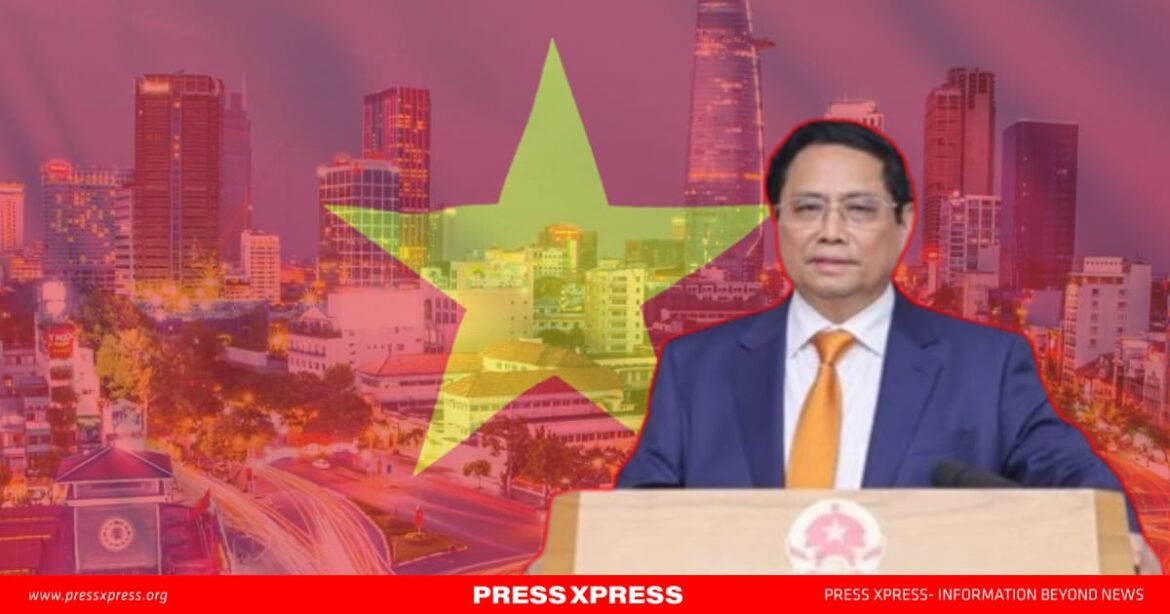Vietnam has made significant strides in socio-economic development and foreign affairs in 2024, despite global challenges, according to Dao Xuan Lai, Deputy Resident Representative of the United Nations Development Program (UNDP) in Laos. Lai praised Vietnam’s achievements while talking with local media, attributing them to a transformative shift in economic strategy and robust international engagement.
A Shift in Economic Thinking Drives Growth
Vietnam’s transition from a planned economy to a socialist-oriented market economy has been pivotal to its success. This economic transformation, which began nearly four decades ago, has propelled Vietnam into the ranks of the world’s top 40 economies, with a GDP of $430 billion in 2023. Within the Association of Southeast Asian Nations (ASEAN), Vietnam now ranks among the top five economies.
Per capita GDP has reached approximately $4,300, while the multidimensional poverty rate has dropped to an impressive 2.9%. These results underscore Vietnam’s remarkable progress from its humble beginnings as an underdeveloped agricultural economy with a GDP of just $26.3 billion in the 1980s.
A Global Trade Powerhouse
Vietnam has become one of the world’s most open economies, with trade relations spanning 230 countries and territories. It has signed over 500 bilateral and multilateral agreements, including 17 free trade agreements, further cementing its integration into the global market.
Total import-export turnover is projected to reach $800 billion in 2024, double the country’s GDP. Foreign direct investment (FDI) has also surged, with $31.4 billion attracted in the first 11 months of the year, primarily in the processing and manufacturing sectors.
Vietnam’s economic growth model has evolved significantly, shifting focus from agriculture to industrial production and services. This transition is driving higher value creation across economic sectors and fostering inclusive growth. Small- and medium-sized enterprises (SMEs) are increasingly benefiting from the expanding economy, contributing to shared prosperity.
Diplomatic Advancements and “Bamboo Diplomacy”
Vietnam’s foreign policy has garnered international recognition, characterized by what Lai described as “bamboo diplomacy”—flexible, resilient, and deeply rooted. The country has established diplomatic ties with all 193 United Nations (UN) member states, including special relationships with three nations, comprehensive strategic partnerships with five, and strategic partnerships with 13.
Vietnam’s National Assembly actively participates in regional and global parliamentary unions, while the Vietnam Fatherland Front and various organizations engage in cooperation with 1,200 international partners. Vietnam’s role as a responsible UN member state is evident through its contributions to peacekeeping missions and its commitment to multilateralism.
A Vision for the Future
Lai highlighted the importance of sustaining political and macroeconomic stability to attract international investors and build trust among global partners. He emphasized the need for Vietnam to enhance labor productivity, promote innovation, and prioritize technological research and development.
In light of global environmental challenges, Vietnam must also accelerate its transition to a green economy by focusing on renewable energy and sustainable practices. These steps, Lai noted, will be critical for maintaining Vietnam’s impressive momentum in socio-economic development and diplomacy.
Vietnam’s achievements in 2024 underscore its resilience and adaptability, offering a blueprint for continued growth and deeper international integration. As the country looks to the future, its commitment to inclusive development and strategic engagement positions it as a rising leader on the global stage.


